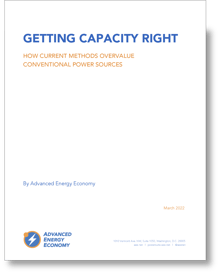Publish Date: March 30, 2022

Acceleration of the clean energy transition is dramatically shifting the types of electric generation technologies used to meet electricity demand and reliably operate the grid. Rapid cost declines in advanced energy technologies like wind, solar, and energy storage are making them increasingly competitive choices for new generation additions. While there has been considerable attention devoted to determining the reliability value of these new resource types, the methods used to evaluate the resource adequacy, or capacity value, of conventional thermal generating resources (including coal, natural gas, and oil-fired power plants) have not been formally reexamined or updated in decades.